European Scorecard: A Country-by-Country Guide Guide to the Debt Crisis
THE PERIPHERY:
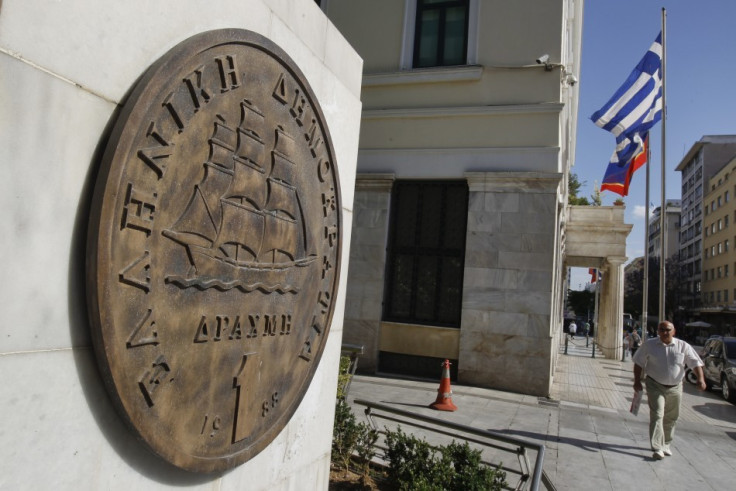
GREECE
The stark reality of Greece's dire economic morass has already claimed the health of the first finance minister and may yet topple the weeks-old government of Prime Minister Antonis Samaras.
Greece's GDP will likely contract by at least 7 percent this year, extending a recession which has already lasted more than half a decade.
Samaras and his new finance minister, Yannis Stouranaras, need to convince lenders from the European Union, the International Monetary Fund and the European Central Bank that if can deliver on at least €11.7bn of new, detailed spending cuts before the so-called Troika will release the next round - €31.5bn - of cash from last year's bailout.
It's no exaggeration to say the funding is absolutely critical to Greece's survival. The government will likely run out of cash by the end of the month after first half tax revenues fell short of target by nearly €1bn. Adding further time pressure to Greece's reforms is the fact that €2.6bn in Greek debt, held at the ECB, comes due on 20 August. If Greece can't make the redemption payment, it will effectively default to one of its key creditors.
Popular support for Samaras' reforms, which include severe cuts to healthcare and a massive reduction in the public sector workforce, is fragile. His New Democracy party was forced to take on allies from two other parties to form its current coalition and any perceived split could bring it to the edge of collapse. Meanwhile, the stridently anti-bailout upstarts of Syriza and their charismatic leader, Alexis Tsipras, continue to enjoy at least a plurality of voter support.
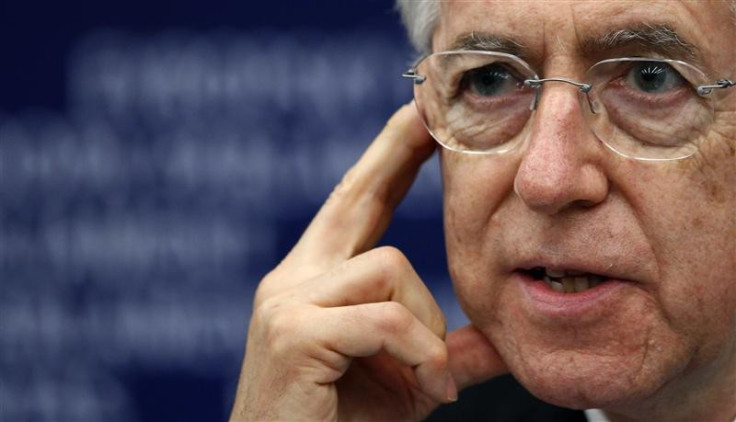
ITALY
The IMF says Italy's on the "long path" to recovery but that Prime Minister Mario Monti still has a challenging task ahead of him.
No doubt: Italy has the region's slowest economic growth over the past decade. The Fund sees a 1.9 percent contraction this year and a budget deficit of around 2.6 percent of GDP. It doesn't expect Italy's economy to grow until at least 2014. The Bank of Italy expects a 2 percent contraction while Italy's official government target is for a 1.2 percent slippage.
Monti, who handed over his Finance Minister brief to Vittorio Grilli this week, has pushed through reforms of its pension system and labour markets, deregulated some government services and announced a huge €26bn in spending cuts.
Monti, who's short term as Prime Minister ends next April, will not seek a return to office, although he has left open the idea of continuing a role in federal politics as President.
His departure clouds the process of reforms and austerity in the coming years. However, political infighting among both his allies and detractors has kept speculation alive that his government may fall before that, setting up a critical election sometime in the early autumn. The fractured nature of Italian politics - not to mention the unpopularity of Monti's nascent reform programme - is evident in the near 20 percent poll ratings for the Five Star political movement, led by comedian Beppe Grillo, which advocates debt repudiation and an exit from the European single currency.
Italy's 10 year government bond yields are trading at around 6 percent, and its debt load sits as €1.95tn, which is around 126 percent of GDP and the third largest in nominal terms in the world.
Perhaps more troubling is the fact that it's only raised around half of the cash it needs between now and the end of the year. RBS analysts predict at least another €112bn in Italian debt auctions between now and December.
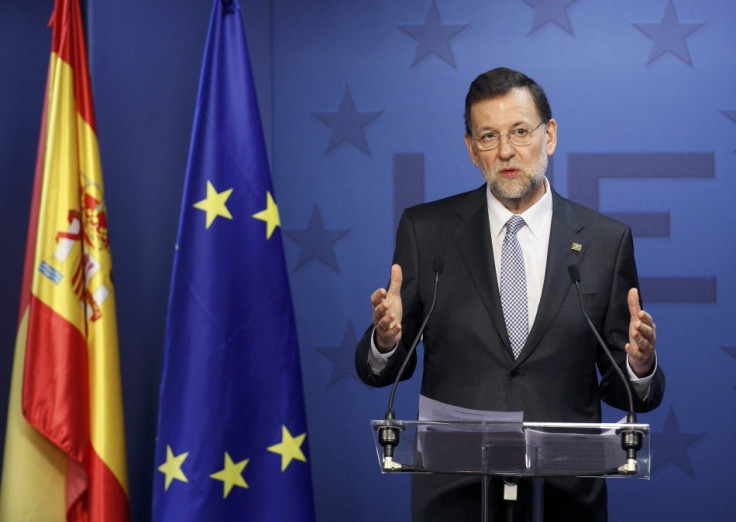
SPAIN
Prime Minister Mariano Rajoy promised to "press the accelerator pedal" on budget reforms last week after securing both an extension to his deficit reduction plans and a pledge to quickly inject around €30bn into his nation's troubled banking sector.
His plans, outlined in Parliament Wednesday, include a 3 percent hike in VAT, the elimination of property tax breaks, income tax cuts, public sector benefit reductions and state-led sales of airport, rail and port assets.
The comprehensive measures, Rajoy says, will save around €65bn over the next two and a half years and go some way towards trimming Spain's budget gap closer to the 3 percent target it has agreed with its (now) EU creditors.
Strict conditionality on the bank capital support, however, is likely to be deeply unpopular with Spain's political opposition while the public are unlikely to be terribly enamoured with the VAT rise of the proposed review of jobless benefits, particularly given the fact that unemployment sits at around 24 percent and nearly half of the nation's youth are without work.
Spain's broader economic concerns go some distance beyond its banks, as well. The IMF says Spain's economy will contract by around 1.8 percent this year, extending its recession into a third year. The Paris-based OECD said Tuesday it doesn't expect an economic recovery - or an improvement in its unemployment rate - until the second half of next year.
The government's finances are also stretched to the limit, as tax receipts have fallen more than 1.5 percent this year while spending, thanks to the support needed to prop-up Spain's profligate semi-autonomous regions, has risen by 12 percent.
Debt costs alone are up 32 percent from last year as bond yields have risen relentlessly and debt auctions have become increasing more expensive. Spain's benchmark 10 year bonds are still trading north of 7 percent despite the two EU agreements and Rajoy's comprehensive budget reforms.
About 60 percent of Spain's gross debt issuance is complete, but the €43bn or so it still needs to raise will be increasingly difficult unless it's better able to convince investors that it has a firmer hand on the financial tiller.
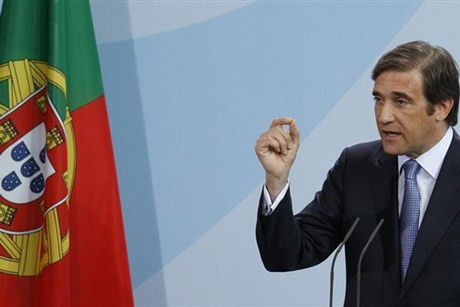
PORTUGAL
A recent ruling from the country's supreme court has put the ambitious plans of Prime Minister Pedro Passos Coelho to return to the bond market next year in serious doubt. Around €2bn in proposed pension and civil service wage reforms were declared unconstitutional last week, a move that will likely delay Portugal's deficit reduction schedule.
Portugal's economy will likely shrink by around 3 percent this year and will only grow, if at all, by only 0.1 percent in 2013, the central bank said Monday. The ECB's chief economist, Peter Praet, says much of next year's growth potential will depend on developments in Spain.
Portugal's people, who are now suffering under the austerity measures and a euro area high 15.9 percent unemployment rate, are beginning to question the benefits of single-currency membership after a decade in which the economy has averaged only 1 percent of economic growth each year.
Portugal is, of course, working to terms of a €78bn bailout agreed last year. It's 10-year bond yields have fallen sharply from a record high 18.9 percent but still sit uncomfortably above 10 percent, making long-term borrowing in international markets next to impossible.
The IMF's last review - its fourth since the bailout - was broadly positive on Coelho's reform efforts but signalled the need for more labour market efficiencies and increased productivity. Given the likelihood that it will received continued tranche releases from the Troika (the next is due this month and is worth around €4.1bn, Portugal's near-term financing concerns are minimal, but it's longer-term task of returning to international competitiveness remains immense.
Coelho told lawmakers in his annual State of the Nation address Tuesday that Portugal needed to continue on its fiscal adjustment path unaided by its European partners: "We cannot think that our problems should be solved by others ... with our effort and participation we have to continue giving an example to Europe, and we can tell it that we can overcome difficulties and be responsible."
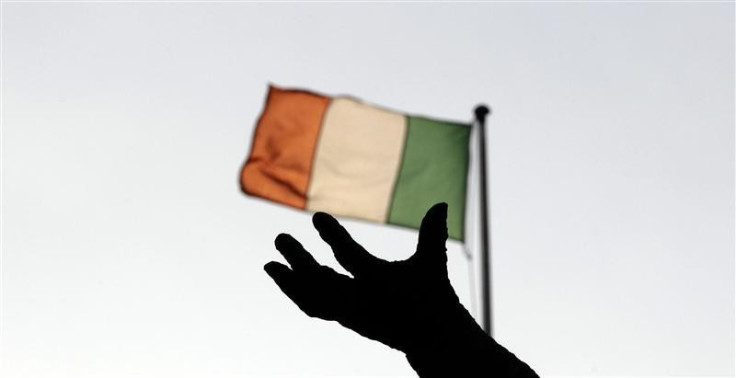
IRELAND
The Eurozone's star pupil of the bailout class has done just about everything it's been asked since securing an €85bn rescue two years ago. Tax receipts are strong - particularly from the corporate sector and are 3.1 percent ahead of target already this year at €1.7bn. It's also in-line with budget deficit reduction targets and has kept a tight cap on public spending.
Its first test of the bond markets in more than two years last week raised around €500m in three-month treasury bills at a cost of 1.8 percent. Irelands' benchmark bonds due on 2020 trade at around 6.3 percent, a huge improvement from last year's 14 percent level.
First quarter GDP figures published Thursday show a deep 1.1 percent contraction for the fourth quarter of 2011, but revised figures for that period mean Ireland managed to avoid a technical recession: output in the final three months of last year was marked at 0.7 percent versus an earlier assumption of a 0.2 percent contraction.
Finance Minister Michael Noonan predicts full-year growth of 0.7 percent for 2012 after last year's revised 1.4 percent advance, but stubborn unemployment and a virtual implosion in domestic property prices is hampering demand.
Ireland's fiscal disciple is a stark contrast to the multiple failures of bailout targets in Greece and the lax conditions (by comparison) linked to Spain's €100bn bank rescue have led to calls for a renegotiation of some of Ireland's bailout terms with the Troika. Noonan has advanced the idea of using the Eurozone's permanent bailout facility, the European Stability Mechanism, to absorb the costs of Ireland's own bank rescue.
Ireland used around €31bn in so-called promissory notes to capitalize one of its struggling lenders, Anglo Irish Bank, and may seek to place those with the ESM once it's up-and-running later this year. However, analysts from Citigroup have argued this likely won't be enough to avoid a second request for aid when the country's first bailout terms expire next year.
THE CORE:
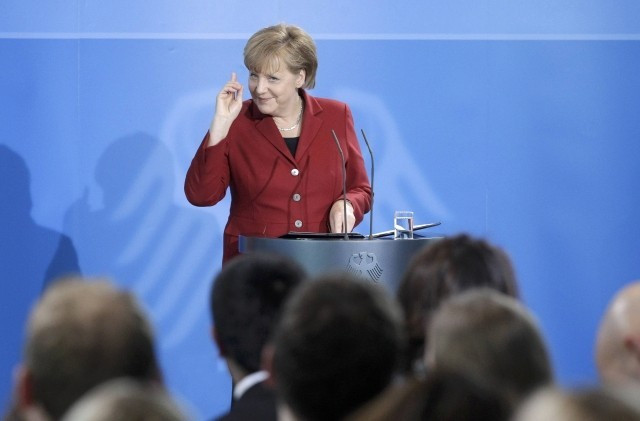
GERMANY
Europe's engine room is begging to show signs of sputtering as its industrial and manufacturing sectors slow and its economy stalled in the first few months of the year. This might explain a portion of Chancellor Angela Merkel's reticence towards funding future Eurozone rescues or collectivizing the region's debts.
But recent signals are starting to improve: May's factory orders rose faster than expected thanks to a big jump in orders from Eurozone customers. Exports rose 3.9 percent in May, sharply reversing April's 1.7 percent decline and industrial output rose 1.6 percent.
Merkel's political intransience, however, is beginning to take its toll on the Eurozone recovery. As is its delay in ratifying the permanent bailout facility, the ESM, and the region's fiscal pact thanks to a legal challenge now being heard in the country's constitutional court in Karlsruhe.
No final decision date has been given for the Bundesverfassungsgerich's ruling - which heard arguments Monday - but German Finance Minister Wolfgang Schaeuble urged the eight judges to come to a conclusion as quickly as possible, although he claimed in radio interview today that he wasn't applying pressure to the judicial branch of Germany's constitutional government.
A prolonged ESM delay could have huge consequences for Europe's myriad rescues, as the temporary bailout fund, the European Financial Stability Fund, is not considered large enough to take on the needs of its contributors.
Germany's share of the ESM capital this year is around €8.7bn. With a bit more than half of its annual financing needs already booked, Germany's likely to execute another €80bn in bond sales between now and the end of the year.
Germany enjoys some of the most advantageous funding costs in the world. Yields on its benchmark two-year schatz are effectively zero while only today it sold €4.2bn in 10 year bunds at record low yield of 1.31 percent.
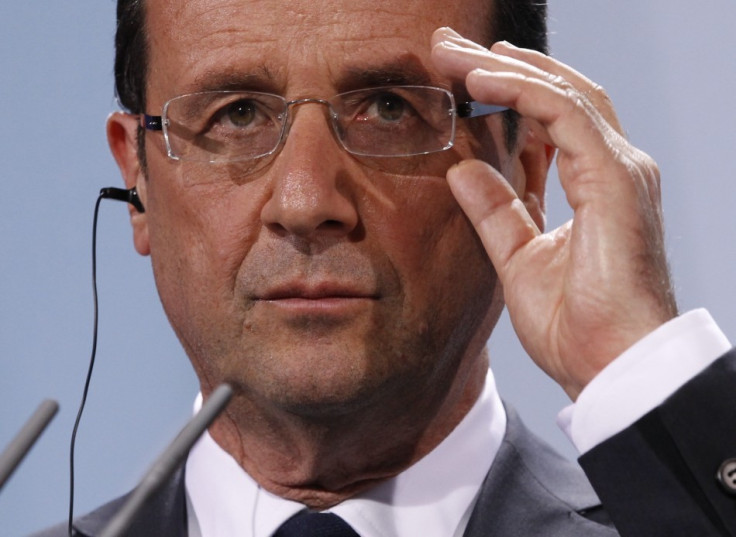
FRANCE
The new balance of power in the Eurozone was established shortly after the surprise election win of socialist President Francois Hollande with his first visit to Berlin to meet Chancellor Angela Merkel. Hollande immediately challenged the "austerity-first" strategy she steered with the full support of Hollande's predecessor, Nicolas Sarkozy, and set in motion the new political tone of "growth and stimulus" among the region's leaders.
Of course, the key challenge for any socialist is how he or she plans to pay for the promises they make, and Hollande is no exception. His first supplementary budget found a €7.1bn hole in his finances - one that he plans to fill with a €7.2b set of tax increases, including a swingeing 75 percent levy on those earning more than €1m.
Politics aside, he and Prime Minister Jean-Marc Ayrault still face the domestic challenge of avoiding recession in Europe's second-largest economy. French Finance Ministry figures point to a 0.3 percent GDP advance this year and a sharp 1.2 percent rise in 2013. Few think the figures are achievable. Doubly so if the government plans to meet it deficit targets of 4.4 percent and 3 percent over the next two years.
Full fiscal consolidation of around €45bn is needed to deliver the aims, a tough ask when business confidence is at a three-year low and PMI data points to a -0.1 percent contraction in second-quarter GDP.
Bank of France Governor Christian Noyer has warned Hollande of France's "serious" economic weaknesses in his annual letter to the President and called for labour market reforms to ease the 12-year high level of unemployment and bring down unit-labour costs which are nearly 20 percent higher than those in Germany, thanks in part, some argue, to the 35-hour work week imposed by socialist Prime Minister Lionel Jospin in 12 years ago.
Hollande has also boldly proposed a review of the sacred French welfare system, and has appointed former EADS CEO Louis Gallois to head a taskforce that would address the issue of France's lost competitiveness.
France has wrapped up around 62 percent of its gross annual bond sales so far this year and needs to tap the markets for another €78bn.
France's bond market access, however, remains impressive despite its myriad issues. Short-term bonds are trading at only 6 basis points while benchmark 10-year funding costs are near a euro area low of 2.3 percent.
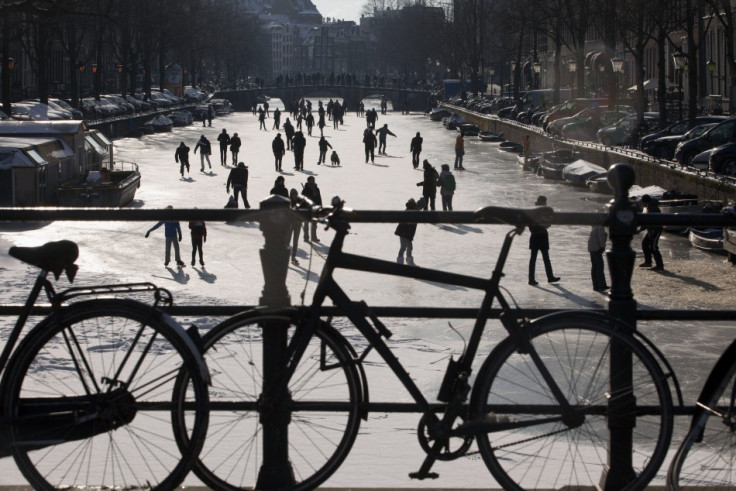
THE NETHERLANDS
If Britain had a soul mate in the Eurozone, it would be Holland: lover of football, beer, populist politics combined with a disdain for the broader European project. Votewatch Europe, in fact, says the Dutch are outpaced only by the British for their Eurosceptic positions in Brussels and Strasbourg.
And, like Britain, the Netherlands is a nation of contradictions. Despite being one of the region's most strident voices in support of Chancellor Angela Merkel's austerity-led politics, the Dutch central bank said last month it doesn't expect the economy will meet Maastricht budget targets until at least 2014 - making it a clean run of 6 consecutive years of breach.
In fact, it was a budget dispute that brought down Prime Minister Mark Rutte's government in April after Freedom Party leader Geert Wilders withdrew his support for emergency austerity measures - forcing a September election and an embarrassing request from Rutte to the EU for an extension on his budget reforms.
Rutte's VVD party still holds a comfortable lead in the polls which projects to around 35 of the Dutch parliament's 150 seats. He'll need, then, Wilders' support to form a strong coalition but that's likely to elicit another debate over spending cuts and tax reforms - although the Dutch have already signed-off on ratifying the ESM after its High Court rejected a legal challenge from Wilders in the spring.
The triple-A rated economy (although recently downgraded by independent rater Egan Jones) will likely shrink 0.6 percent this year while recovering the same amount in 2013, the central bank predicts.
The Netherlands has raised around 70 percent of its targeted bond sales this year and needs to sell another €18.5bn by December to fund its current account and meet its ESM obligations.
Dutch two year notes fell to a record low yield of 0.07 last week while benchmark 10 year bonds trade at around 1.71 percent.

FINLAND
The Lapp-region nations stands alone as the sole Eurozone member to have never breached any of the Maastricht Treaty's criteria - even during the 2009 economic collapse which shaved more than 8 percent from its GDP. It's only of only six European countries with a triple-A credit rating and has the lowest budget deficit (around 0.8 precent) of any single currency partner.
However despite, or perhaps because of, its incredible fiscal disciple, Finland is now begging to assert its political presence among its European partners.
Finland wants senior creditor status for its taxpayers to any contributions is makes to both the EFSF or the ESM, Finance Minister Jutta Urpilainen argues, and has effectively paid for such by forgoing any future profits from the funds and front-loading their payments (although it's withholding its €6.8bn ESM payment until the rules are ironed out and Germany's Constitutional Court makes its ruling).
Prime Minister Jyki Katainen is also opposed to using the ESM as a vehicle for purchases in the primary or secondary bond market. His domestic position has become more difficult since Finland's involvement in European bailouts increased, resulting in surge in support for the nationalist anti-euro "True Finns" party in last year's elections.
Finland's Finance Ministry expects the economy to grow by around 1 percent this year, although the April GDP tally was no stronger than 0.2 percent expansion.
A major concern beyond the Eurozone crisis, however, is the future of Nokia. Once the biggest handset maker in the world, and a key driver of exports and employment, its shares have slumped to a 16-year low as its failed to keep pace with rivals Apple and Samsung and its debts were cut to junk status by Moody's Investors Service. Nokia says its planning around 10,000 job cuts worldwide, including around 4,000 in Finland.
Finland needs to raise around €8.1bn in the bond markets between now and the end of the year.
Finland's benchmark 10 year bonds trade at an exceedingly low yield of 1.53 percent - just 20 basis points higher than Germany.
© Copyright IBTimes 2025. All rights reserved.





















